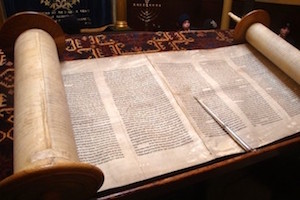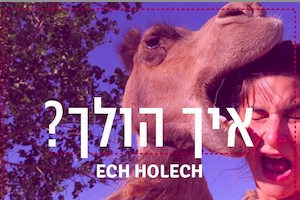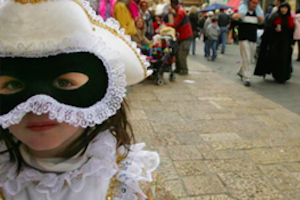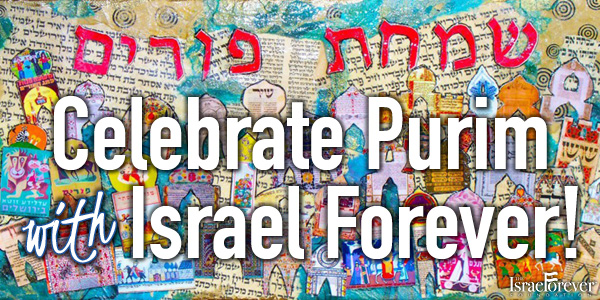Hebrew words you can learn for Purim
Hebrew, the language of the Nation of Israel was used in ancient times and has been revived in modern day Israel. Israel Forever has brought to you here a number of words that appear in Megillat Esther and are used when speaking about Purim.
Are you familiar with these words? If not, now is your opportunity to enrich your Hebrew vocabulary with these words that connect our past, present and future.
פור (s)
פורים (p)
Translation: Lots, as in “to draw lots”
Purim (plural, many lots and the Festival)
Transliteration: Purim
להתחפש
Translation: To dress up or disguise oneself
Transliteration: Le’hitchapes

תחפושת
Translation: Costume
Transliteration: Tachposet

אזני המן
Translation: Hamantashen cookies (lit: Haman’s ears)
Transliteration: Ozney Haman
Known as Hamentashen (Yiddish)
מִשְׁלוֹחַ מָנוֹת
Translation: Gifts of food on Purim (lit: sending portions)
Transliteration: mishlo'ach manot
(מֶלֶךְ (ז) מַלְכָּה (נ)
Translation: King, Queen
Transliteration: melech (m), malka (f)
ממלכה
Translation: Kingdom
Transliteration: Mamlachaa
In the Purim story Kingdom is also referred to as מלכות - Malchut
הֲדַסָּה
Translation: Hadassah
A girl’s name, meaning “myrtle.” It is used in the Book of Esther (2:7) as a substitute name for Queen Esther.
מרדכי
Translation: Mordechai
A boy’s name, related to the myrrh ingredient used in the Temple incense (Exodus 30:23).
עיר
Translation: city
Transliteration: Ir
חצר
Translation: Courtyard
Transliteration: Chatzer
כתר
Translation: Crown
Transliteration: Keter

סעודה
Translation: feast, banquet
Transliteration: seudah
In the Purim Story feast is referred to as משתה - Mishteh, from the word לשתות to drink.
צום
Translation: Fast Day
Transliteration:Tzom
In Hebrew the word תענית - Ta’anit can also be used for Fast Day, as in תענית אסתר - the Fast of Esther
סוס
Translation: Horse
Transliteration: Soos
מגילה
Translation: Scroll
Transliteration: Megillah
אחים
Translation: Brothers
Transliteration: Achim
עץ
Translation: Tree
Transliteration: Etz
חודש אדר
Translation: The month of Adar
Transliteration: Chodesh Adar
Adar is the twelfth month of the Jewish calendar
שושן
Translation: Shushan
Transliteration: Shushan
Shushan was the capital city of the Empire in the Purim story.
ונהפוכו
Translation: And we shall change it (lit: turn it upside down)
Transliteration: V’nahafoch hu
זהות
Translation: Identity
Transliteration: Zehut
שקל
Translation: Shekel
Transliteration: Shekel
Israeli money based on the biblical monetary names.
שער
Translation: Gate
Transliteration: Sha’ar
Did you know?
Esther began her plan of saving the Jews by inviting Achashverosh and Haman to her party with the words, “Let the king and Haman come today…” (Esther 5:4). The Hebrew words יבוא המלך והמן היום are the acronym Yud-Heh-Vav-Heh, the Name of G-d.
The Hebrew phrase מי הוא זה ואי זה הוא אשר contains an exquisite hidden reference.
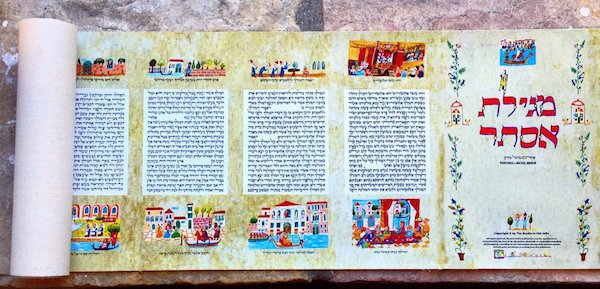
The words הוא זה ואי זה end with the letters אהיה, “I will be”. Then comes the word אשר, “that”. Then the words זה ואי זה הוא again end with the letters אהיה, “I will be”, this time spelt backwards. Hence Achashverosh’s cry of rage contains a veiled reference to the words that G-d used to introduce Himself to Moshe at the Burning Bush, אהיה אשר אהיה – “I will be that which I will be” (Exodus 3:14).
The writer of the Megillat Esther uses the language chosen to give us a subtle message: nothing is mere happenstance. Though He is hidden, G-d nevertheless controls events.

